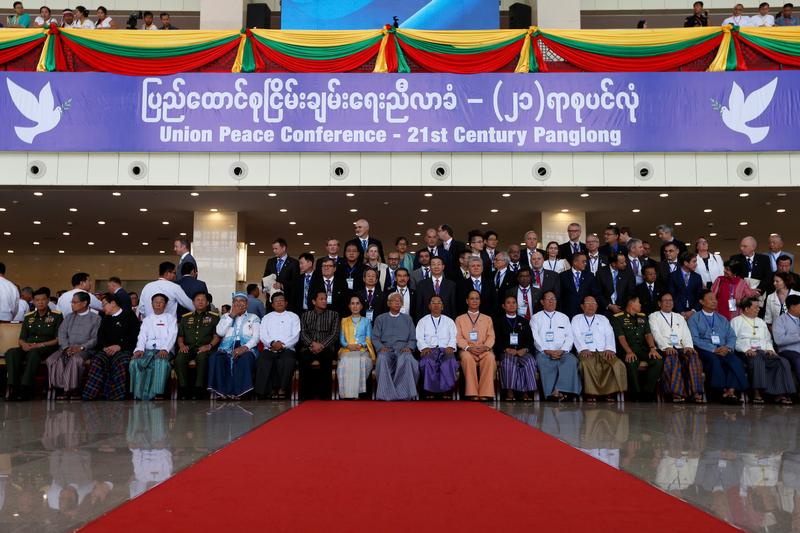The Federal Political Negotiation and Consultative Committee (FPNCC) released a statement on Thursday conveying the ethnic armed bloc’s intention to join the next iteration of the government’s 21st Century Panglong Conference if its members are officially invited to do so.
A committee meeting of the FPNCC was held from 18-24 August in Panghsang, capital of the Wa self-administered zone in northern Shan State.
In the statement released at the meeting’s conclusion, the FPNCC urged State Counsellor Aung San Suu Kyi to act promptly on a pledge she made at the second round of the 21st Century Panglong Conference in May to appoint a government delegation specifically to liaise with the FPNCC and conduct further negotiations.
Thursday’s statement further read: “The Tatmadaw shall cease its offensives and the FPNCC will engage in political negotiations to solve the political issues, and has always opened the door to negotiations in order to build a federal democratic Union that guarantees equality and self-determination.”
The FPNCC also appealed for more cooperation from the Chinese government to bolster prospects for the success of Burma’s peace process.
Twenty-eight representatives from the FPNCC’s seven ethnic armed groups attended the Panghsang meeting. To date, the government and the Burma Army have not engaged in official negotiations with the ethnic armed alliance.
The second and most recent round of the 21st Century Panglong Conference was held from 24-29 May. No date has been set for the third session, but it is expected to be convened approximately six months from the late-May gathering.
An FPNCC delegation attended in May, thanks in part to negotiations brokered by Chinese intermediaries. The United Wa State Army, a FPNCC member, and some of the alliance’s other members have long had ties to China.
In addition to the UWSA, which steers the FPNCC, the alliance’s six other members are the Arakan Army, the Kachin Independence Army, the Myanmar National Democratic Alliance Army, the National Democratic Alliance Army, the Shan State Progressive Party and the Ta’ang National Liberation Army.
[related]
None of the groups is signatory to the Nationwide Ceasefire Agreement, an accord that eight non-state armed groups inked with the previous government in October 2015. Under the peace process’s current framework, signing the accord is a precondition for full participation in the high-level political dialogue that is supposed to eventually bring an end to the country’s decades-long civil war.
An additional outcome of the FPNCC’s seven-day meeting was the appointment of the Kachin Independence Army’s vice chairman, Gen. N’ Ban La, as vice chair of the FPNCC, according to the statement released on Thursday.
With additional reporting by Ye Mon.



